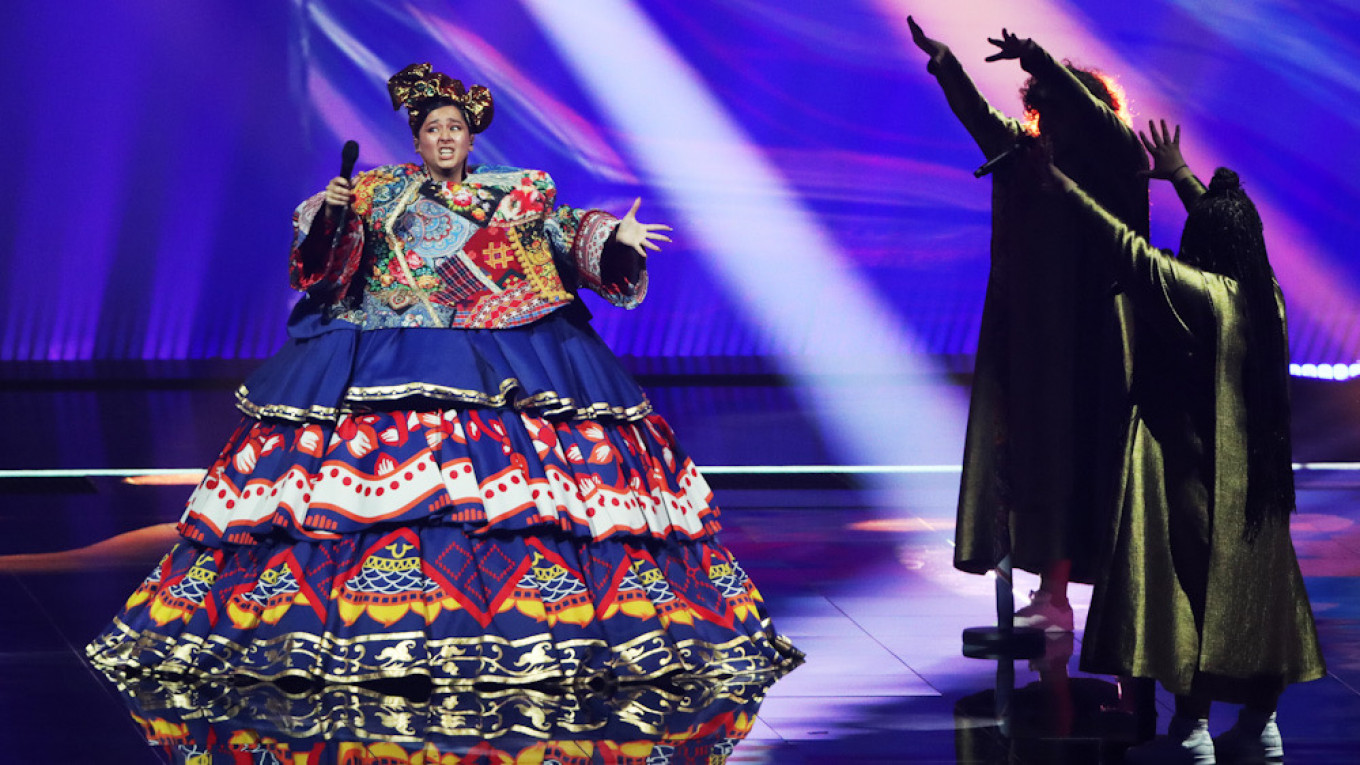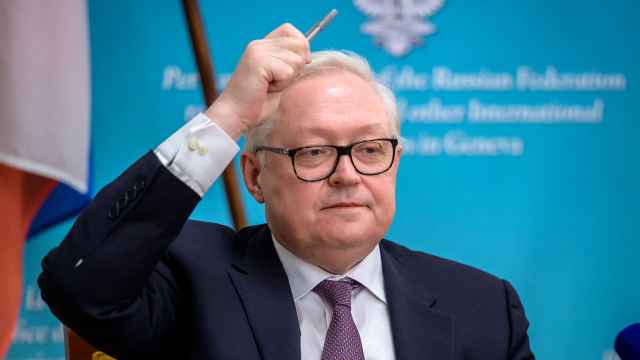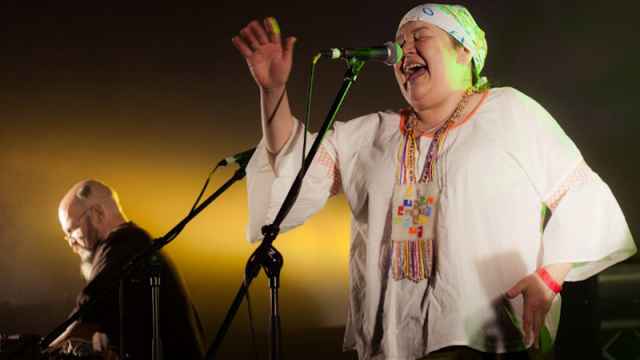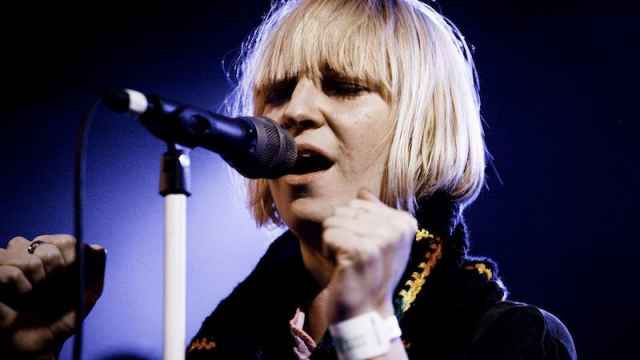Russia is one step closer to bringing home its second ever Eurovision song contest trophy after Tajik-born singer-songwriter Manizha Sangin qualified for the finals late Tuesday.
Manizha’s feminist anthem “Russian Woman” was among the 10 semi-final qualifiers, which also included Ukrainian folk-dance act Go_A, who have secured their place in this weekend’s final. Ten more finalists will be chosen in Rotterdam on Thursday.
Manizha's performance of “Russian Woman” from Tuesday has racked up 1.4 million views on Eurovision’s YouTube page, making it the most-watched video from this year's contest.
The video was also the No. 1 trending clip on Russian YouTube on Wednesday.
Viewers marveled at Manizha’s explosive performance, in which she emerged in an oversized folk costume stylized as a tea warmer before removing it to reveal a red jumpsuit.
Manizha, 29, said she wrote “Russian Woman” on International Women’s Day last year to document “the transformation of a woman’s self-awareness over the past few centuries in Russia.” The folk-rap song urges Russian women to be more independent and resist sexist stereotypes of age, beauty and child-bearing.
Viral hitmakers Little Big were picked to represent Russia at the 2020 Eurovision before it was canceled due to the coronavirus pandemic. They pulled out of this year’s contest, paving the way for Manizha to be chosen by Russian viewers in a nationwide vote earlier this spring.
The singer, a refugee from the ex-Soviet Central Asian republic of Tajikistan and an outspoken pro-LGBT, body-positive feminist, has courted controversy among conservatives in her adopted country.
Several Russian politicians echoed some parts of the population who questioned the choice of a non-ethnic Russian singer to represent the country. Russian investigators also said they would probe the lyrics for “Russian Woman” after receiving complaints of inciting ethnic hatred and “hatred toward men.”
Observers have played up Manizha as an antithesis to Russia’s turn toward social conservatism and “traditional” values that mark the Putin era.
Russia won its only Eurovision contest in 2008.
A Message from The Moscow Times:
Dear readers,
We are facing unprecedented challenges. Russia's Prosecutor General's Office has designated The Moscow Times as an "undesirable" organization, criminalizing our work and putting our staff at risk of prosecution. This follows our earlier unjust labeling as a "foreign agent."
These actions are direct attempts to silence independent journalism in Russia. The authorities claim our work "discredits the decisions of the Russian leadership." We see things differently: we strive to provide accurate, unbiased reporting on Russia.
We, the journalists of The Moscow Times, refuse to be silenced. But to continue our work, we need your help.
Your support, no matter how small, makes a world of difference. If you can, please support us monthly starting from just $2. It's quick to set up, and every contribution makes a significant impact.
By supporting The Moscow Times, you're defending open, independent journalism in the face of repression. Thank you for standing with us.
Remind me later.






